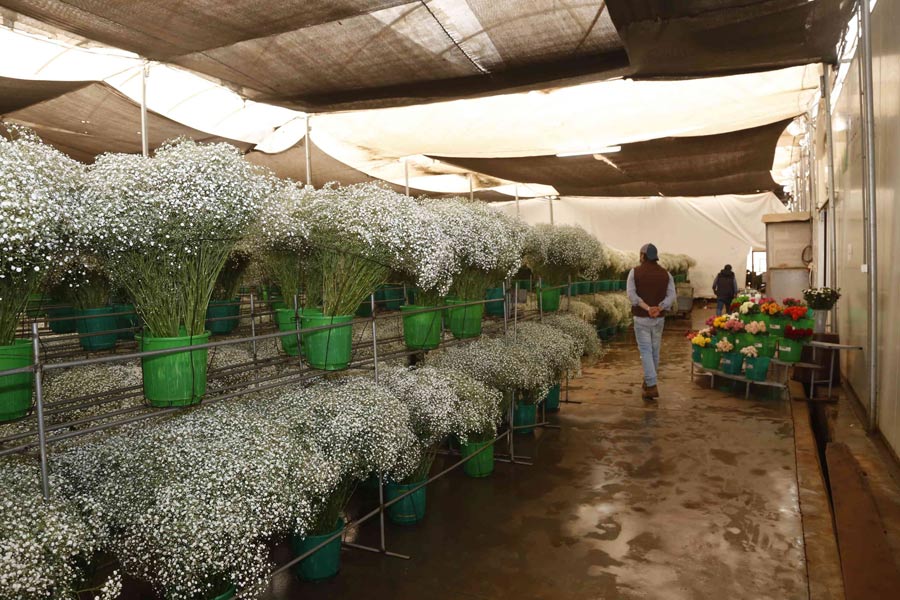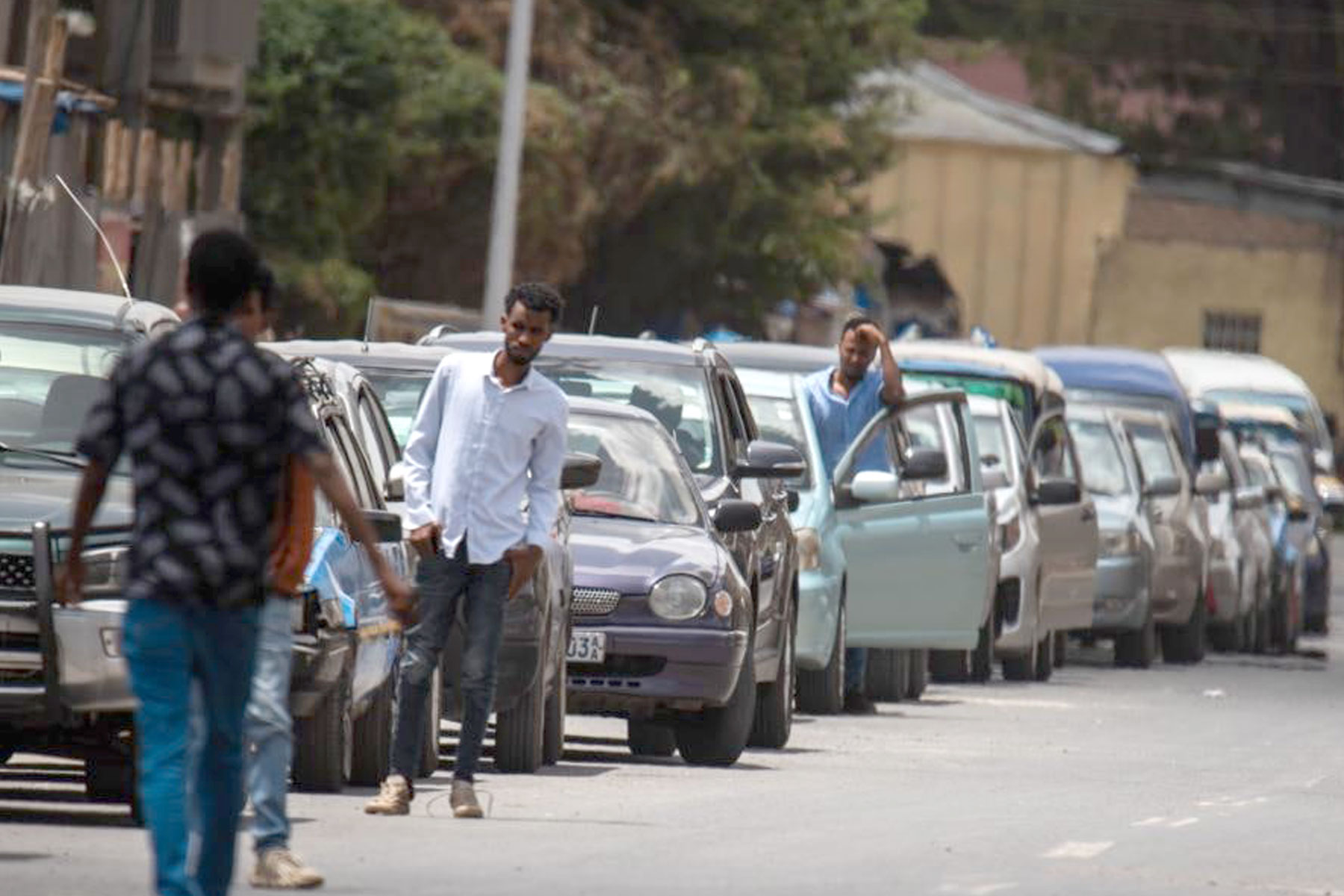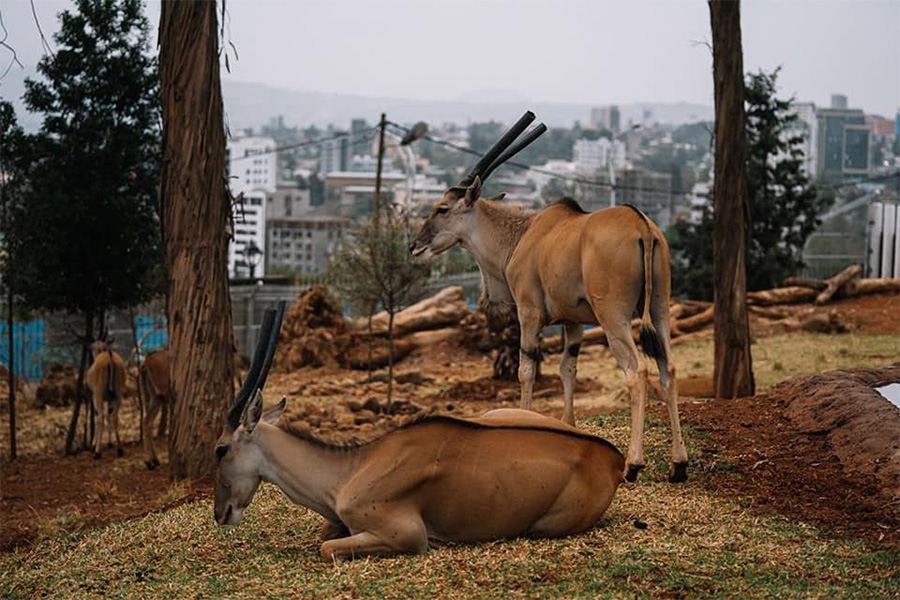
Radar |
Ethiopian officials want to see over a dozen heritage practices and sites inscribed by the United Nations Educational, Scientific & Cultural Organisation (UNESCO) after a submission to have a girls' festival held in the north listed last year was withdrawn.
An annual three-day traditional girls' festival in August, celebrated in the Amhara and Tigray regional states, goes by different names: Ashenda, Shadey or Solel. It corresponds with the end of a two-week fasting period commemorated by the followers of the Ethiopian Orthodox Church. Although it has religious overtones, the festival has evolved into a cultural ritual and a popular attraction in recent years.
In early 2019, tourism bureaus from the Amhara and Tigray regional states petitioned the Authority for Research & Conservation of Cultural Heritage, under Mulugeta Fisseha (PhD), to have the festivals inscribed by UNESCO. Last September, the Authority filed a formal request before UNESCO's Intergovernmental Committee for the Safeguarding of the Intangible Cultural Heritage.
Countries can request intangible heritage practices be included in the nomination list every two years, while tangible heritage sites are eligible every year. Six African countries, including Ethiopia and Djibouti, comprise the committee's 24 members. Its primary purpose is to review applications submitted by governments for the inscription of intangible heritage. In the days leading up to the committee's session held virtually at the end of 2021, the Authority decided to withdraw its application.
The withdrawal was prompted by fears of nonacceptance, which would jeopardise future attempts for the inscription of the heritage practice, according to Andualem Girmay, cultural heritage research director at the Authority. Members of the sub-committee who reviewed the nomination of the girls' festival had expressed concerns over insufficient information on the festival's compatibility with human rights and its relation to gender equality. Their report also indicated the application failed to demonstrate how the festival's inscription would contribute to its growth.
“There was no need to wait for the final decision once we'd seen the report,” said Andualem.
The festival would have been Ethiopia's fifth intangible world heritage practice listed by UNESCO if it had been accepted. Ethiopia has four traditional festivities registered by UNESCO in the six years since 2013: Mesqel and Timket; Fichee-Chambalaalla, a new year festival observed in the Sidama Regional State; and Gadaa, a traditional governance system.
Andualem says the nomination for the girls' festival failed partly due to a lack of support and lobbying from the committee members. An Ethiopian delegation led by Henok Teferra, Ethiopia’s ambassador to France, where UNESCO is headquartered, had tried to convince representatives of other countries to support Ethiopia’s bid. Members of the review committee were unable to visit the country and attend the festivals due to the COVID-19 restrictions on travel and the civil war raging in the north affecting the two regional states.
The delegation advised the Authority to withdraw the submission, according to Andualem.
“If the evaluators were to visit, they'd have seen concerns they raised could be addressed," he said.
The inscription of the girls' festival would have been a golden opportunity for the Amhara Regional State, which has seen tourism tumble because of the pandemic and war, says Melkamu Adamu, head of development and promotion at the tourism bureau of the regional state.
The armed conflict has harmed tourism in both regional states, which are home to some of the country's most valued historical and natural attractions. Official sources claim close to 812,000 tourists visited Ethiopia in 2019, generating a reported 3.55 billion dollars. During the first nine months of last year, 331,000 tourists visited, generating a little over 1.5 billion dollars, according to these sources.
“The inscription of the festival would greatly contribute to the promotional work the region is undertaking to rehabilitate tourism," said Melkamu.
Ayalew Sisay (PhD) is a tourism professional with four decades of experience in tourism, including services to the Ethiopian Tourism Commission and a commissioner for the Addis Abeba Tourism Bureau. He did his doctoral studies in tourism economics at the Zagreb University during the days of Yugoslavia.
He believes inscriptions of intangible heritages would mean little without corresponding efforts that would enable the government to make the most out of it. He cites countries that have changed festival dates to coincide with peak tourist seasons to leverage value and revenues. Ayalew urges officials to consider doing the same for the girls' festival, held during the rainy season when tourist numbers are relatively low. He cautions that disputes over the festival's origins need to be settled if the inscription is to have any use.
“Issues such as this should be addressed first,” Ayalew told Fortune.
Ethiopia has also withdrawn its submission to have the Sof Omar Cave listed as a tangible world heritage site. Located in the Bale Zone of the Oromia Regional State, 500Km southeast of Addis Abeba, the cave is the country's longest at 15.1Km. The Authority had submitted to the World Heritage Committee last year but dropped the bid before the committee's annual session held last July. Committee members' concerns over a "lack of outstanding universal value" prompted the submission's withdrawal.
Despite the setbacks, the Authority is preparing to have seven additional intangible heritage sites and several tangible practice inscribed, Andualem disclosed. Shawal Eid, a festival observed in Harar Regional State on the eighth day of the month (Shawal) following Ramadan is the next intangible heritage Ethiopia wants to see UNESCO registers. Tangible heritage sites, including the Gheralta mountains and the ancient ruins of Yeha in the Tigray Regional State, are also on the list.
PUBLISHED ON
Mar 05,2022 [ VOL
22 , NO
1140]

Fortune News | Dec 30,2023

Featured | Jun 08,2019

Fortune News | Apr 20,2024

Viewpoints | Mar 18,2023

View From Arada | Mar 14,2020

Dec 22 , 2024 . By TIZITA SHEWAFERAW
Charged with transforming colossal state-owned enterprises into modern and competitiv...

Aug 18 , 2024 . By AKSAH ITALO
Although predictable Yonas Zerihun's job in the ride-hailing service is not immune to...

Jul 28 , 2024 . By TIZITA SHEWAFERAW
Unhabitual, perhaps too many, Samuel Gebreyohannes, 38, used to occasionally enjoy a couple of beers at breakfast. However, he recently swit...

Jul 13 , 2024 . By AKSAH ITALO
Investors who rely on tractors, trucks, and field vehicles for commuting, transporting commodities, and f...

Oct 4 , 2025
Eyob Tekalegn (PhD) had been in the Governor's chair for only weeks when, on Septembe...

Sep 27 , 2025
Four years into an experiment with “shock therapy” in education, the national moo...

Sep 20 , 2025
Getachew Reda's return to the national stage was always going to stir attention. Once...

Sep 13 , 2025
At its launch in Nairobi two years ago, the Africa Climate Summit was billed as the f...